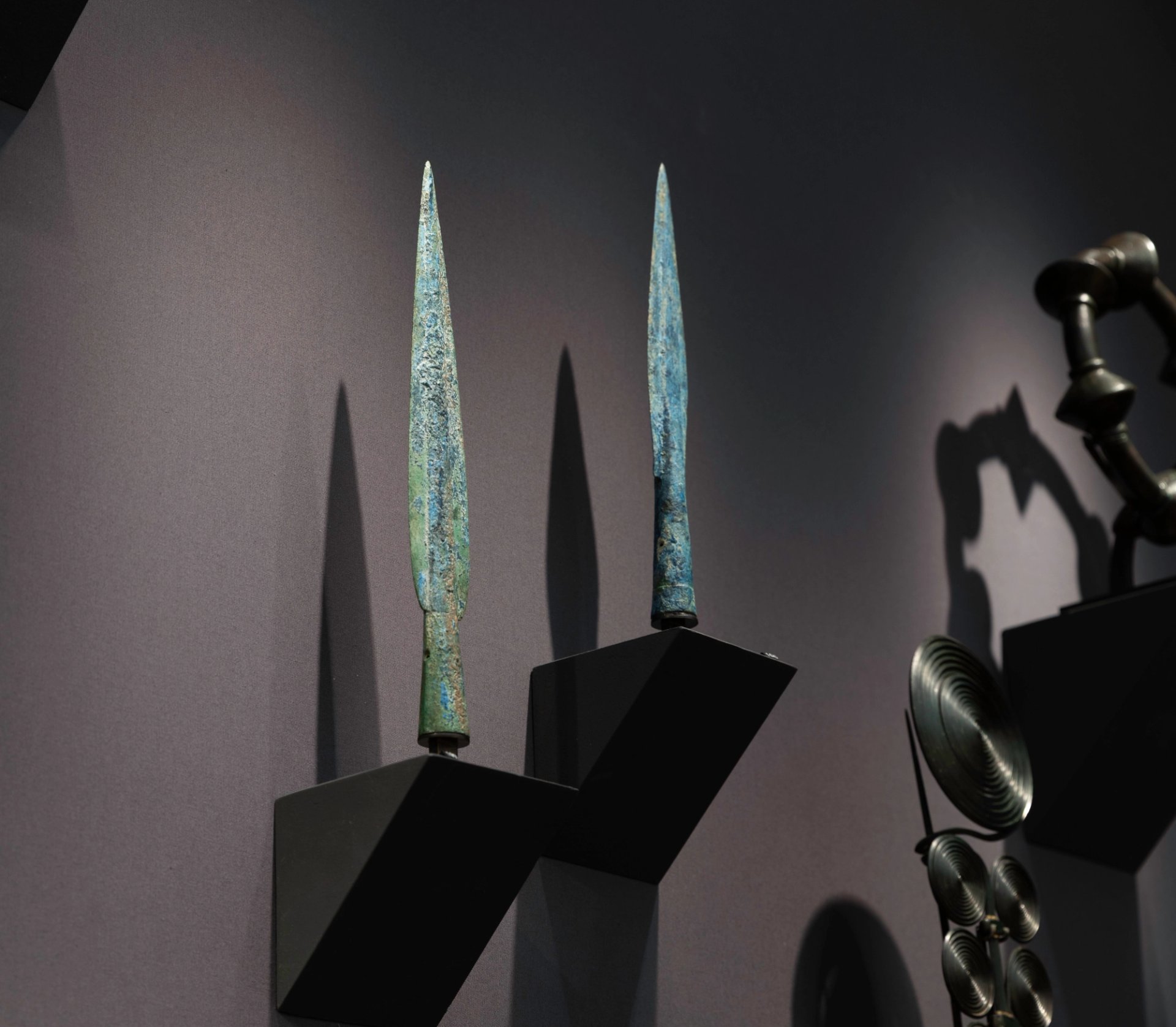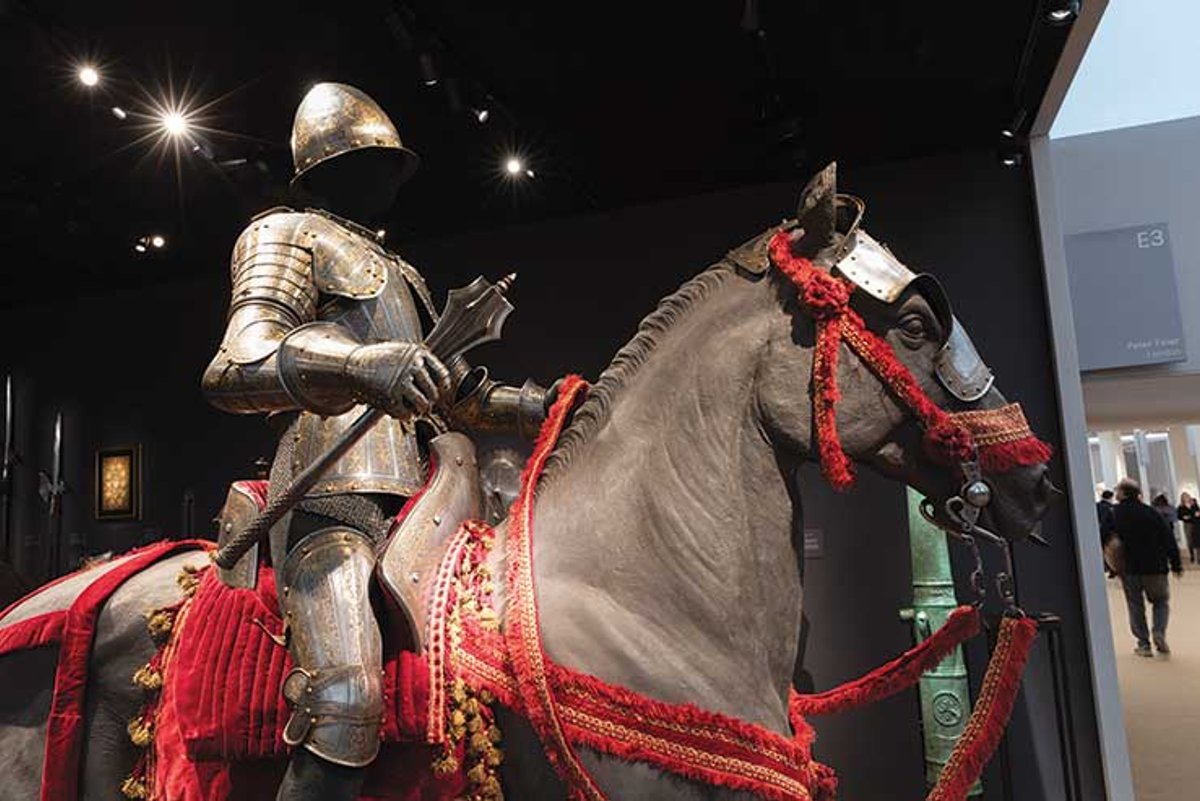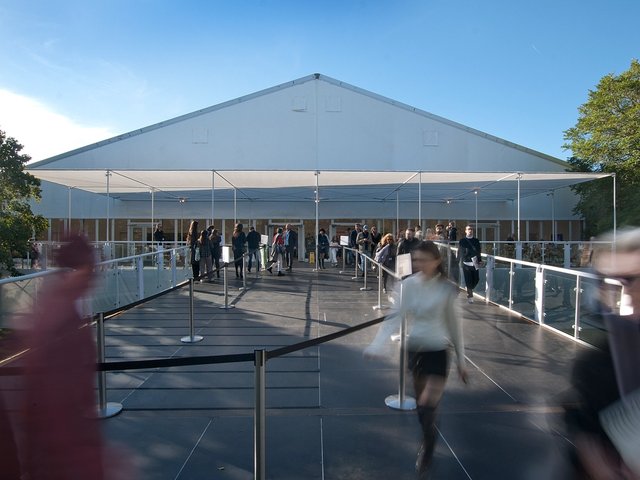Visitors to Frieze Masters looking to shield themselves from the world—and people asking for directions to Gail’s—would do well to visit Peter Finer’s stand, which is filled with exquisite examples of arms and armour stretching back to the 15th century. Towering over the space is a model of a man and horse, decked out in resplendent gilded armour that is on sale as a suite for £1.8m.
The space is a treasure trove: other highlights include an Italian Renaissance sword, its gilt hilt featuring a face of Medusa, serpents twisting through her hair; and an intricately carved, late 16th-century crossbow made of materials including staghorn, wood and bone. Prices begin at £6,500 and go up into seven figures.
The gallery ecosystem for these kinds of items, however, is small: so small, in fact, that at Frieze Masters it belongs almost entirely belongs to Finer, whose dealership was founded in 1967. “I wish there were more dealers,” Finer says. “It’s a double-edged sword, to coin a pun, but sometimes people prefer to have more than one person to deal with.” The secret behind Finer’s longevity and success? “We’ve got a wonderful stock, so we try not to duplicate what we bring at fairs; we also buy back material quite often.”
Shaking up the business
Finer says that his clients range from “major museums to people who collect a particular type of item, right through to those who just buy because they love the look of it”. Many are from the US, and many are connoisseurs. “I’ve got a man who only collects Viking swords, and he knows much more about them than I do. And then there might be another man who particularly loves French pistols by Boutet [Napoleon’s gunmaker]”.
Younger collectors are few and far between, though Finer’s son Redmond has done much to shake up the business, including bringing in ancient and Islamic material. The older Finer retains a great love for firearms.

The bronze spearheads (late Bronze Age, 16th-ninth century BC) on view at Rupert Wace’s booth
Photo: David Owens
A few other examples of arms and armour are scattered around the fair. A monumental, ceremonial silver-gilt Shield of Achilles (1823), purchased by Ernest Augustus, once king of Hanover, is on sale at Koopman Rare Art for upwards of £2m. At Rupert Wace, meanwhile, is a pair of spearheads dating to the late Bronze Age (16th-ninth century BC, £3,800 each or £7,000 for both). They are, says the gallery’s Beth Franklin, another reminder of how objects like this can be as much about art as anything else.
“These really appeal often to a contemporary aesthetic, actually—to people who love the clean lines of them.” That, she continues, and their “real connection to the past”.




